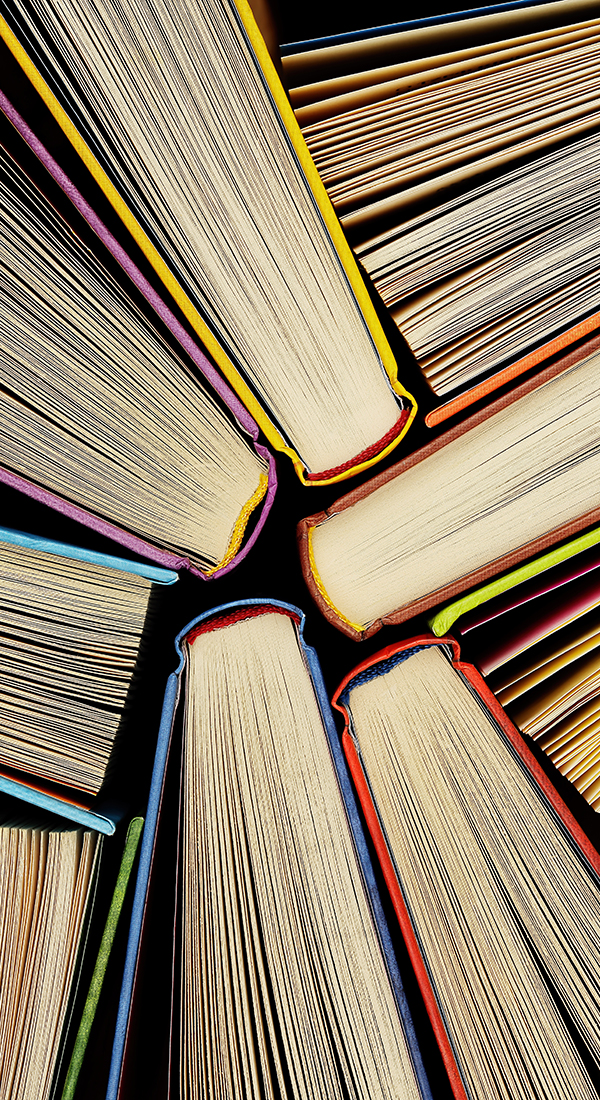Why Books Don't Need Pages
This will into things a lot of people won't care about, but some will care very passionately about. It's the future of books, and more specifically, the technical and UI considerations of how pages work in eBooks.
The thing that got me was this post on the always-exciting eBook Test. In particular, this bit:
For example, while held in landscape mode, an eBook reader could display two pages, side-by-side, just like this current online software at The Internet Archive:
Now, The eBook Test is a very forward-thinking place, with lots of great ideas about the future of books, but in this regard, they feel strangely behind the times. Look at it this way: writing used to happen on scrolls, right? It's like if someone invented the bound book, and said "we must write all the content with the binding at the top, down through the pages, to better simulate the reading experience we're used to". It's silly, and it makes no sense. We're talking about a dramatically changed medium, and we should be embracing it. But how?
Forget pages
This is one of the things that bothers me most about ebooks. We're doing massive amounts of work to create artificial pagination which will never stack up to a properly-typeset page, to what end? So people find it familiar? People read emails onscreen, in one long stream. They read blog posts the same way. People are used to non-paginated content. In fact, when you're reading a post on a site and it's broken into multiple pages you need to click through, doesn't it ANNOY you that someone is obviously misunderstanding the conventions of the web? Like it was designed by old-media nutters who refused to accept the world had changed?
Forget pages. They're useless. Relics. They don't provide any benefit, and they destroy any semblance of quality design. Make page breaks according to thematic shifts, not because of an arbitrary word count. Pages of a picture book? Sure, that's fair. Pages of a novel? Why?
The major complaint of this system is that it's easy to forget where you were when you were reading. Fair enough, but easily fixed. I added a little javascript to my Reader site that records the reader's scroll position as they read. Bookmark the result and revisit, and you are automatically put back exactly where you were. It's better than a page. You pick up exactly where you left off. A reader can read all the way through the chapter without an artificial page shift — and believe me, every page you ask them to flip is a chance they'll decide to come back later — and thusly, we're moving the exit decision to chapters, not pages. We're buying more time to convince the reader to stay.
Look at the idea of a side-by-side presentation. Reading in columns. Again: why? How does that improve the experience? How often do you look at a printed book wide open, just to see the two facing pages at the same time? To appreciate that they exist? Or do you read the one page, then switch to the next, then turn the page? You're reading within the columns. The columns are a limitation of the medium, not a feature. If I used Windows, I wouldn't be using it for the Blue Screen of Death. That's insane. Trying to recreate the flaws of one medium into the next makes so little sense, you'd think it was coming from the RIAA.
Look: short of a standard pixel size for all ebook screens, you can never really know how your content is going to fit. So you're left with a certain amount of guesswork, but certainly no more than the web has already overcome. Focus on making your books make sense in the medium. Design them appropriately, design them beautifully, and forget the old ways of doing things.
I remember designing sites ten years ago, being told: "We have to make sure it prints well!" and cutting back on our techniques to match. These days, we have sites that are so fundamentally un-printable that they're truly amazing to behold. But you know what? That's GOOD. We've started designing for the medium at hand, and it means there are some gorgeous sites out there.
We need to do the same with ebooks. We need to break free of the paper mindset, enhance the capabilities of epub (giving it proper rendering capabilities for a change) and replace old-school typographers with web designers. We're not talking about paper books, or websites either. We're talking about ebooks, and they need the attention they deserve. We need to do something new, something amazing, something that says "this is what an ebook is".
